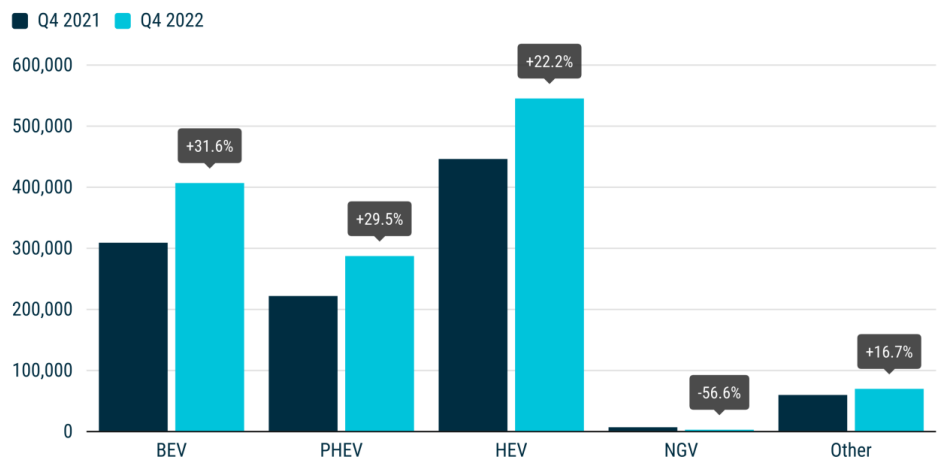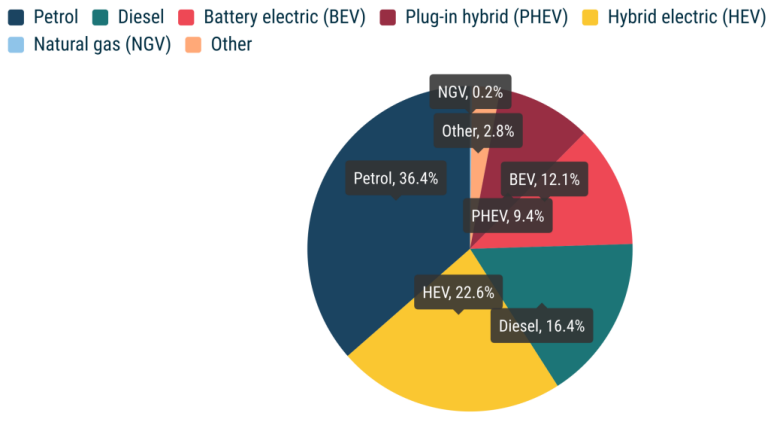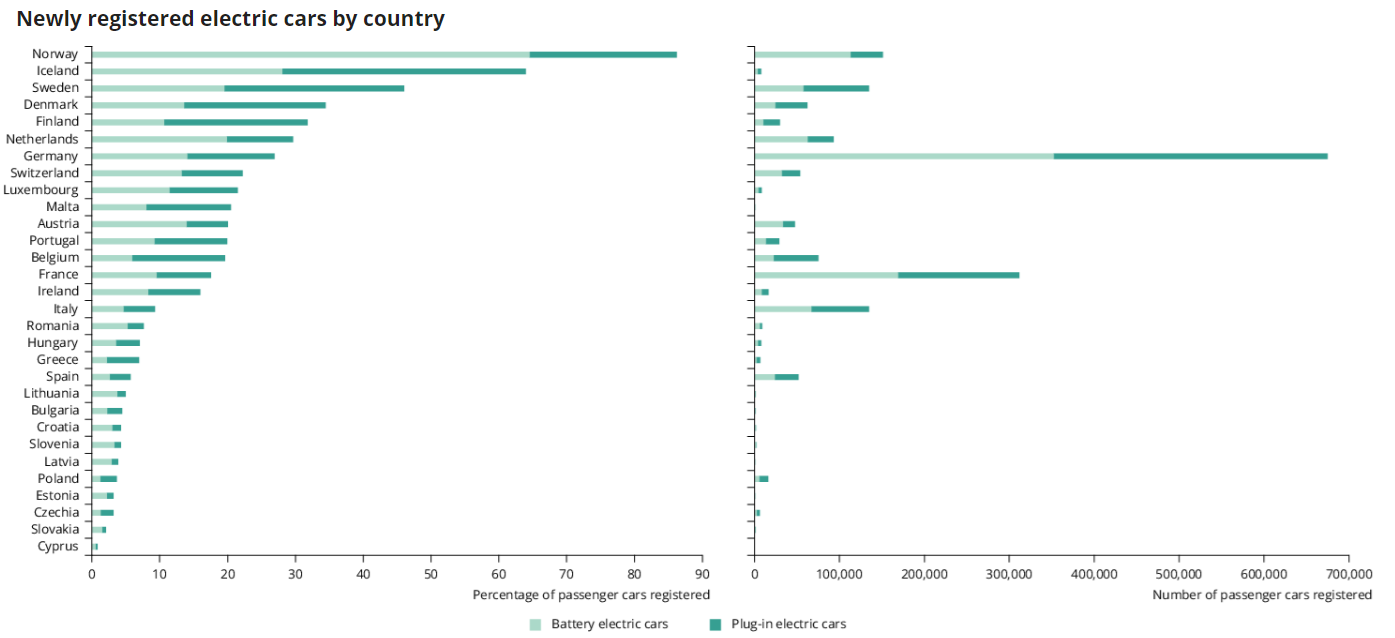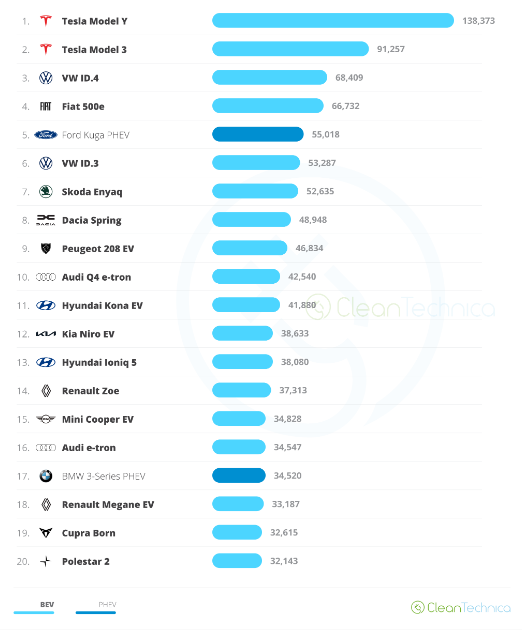Car sales faced a challenging year in 2022 due to the confluence of factors such as the coronavirus pandemic’s lingering effects, the ongoing conflict in Ukraine, as well as surging inflation, energy, and fuel costs.
However, the sales of electric vehicles remained unscathed and even achieved a new record in the European union according to figures released this month by the European Atomobile Manufacturers Association (ECEA).
APV usage exceeded that of fossil fuels!
APV (Alternatively-powered vehicles) reached 1.3 million cars registered in Europe in Q4 of 2022, which represents more than a half of the EU car market in this period. This is the first time on a quarterly basis that APVs have surpassed the use of traditional petrol and diesel.
 Source: ACEA
Source: ACEA
EVs market share full-year 2022 by fuel type
Despite the downward trend in the EU car market in 2022, the registration of new battery electric vehicle (BEV) kept rising, leading to an increase of 3% in their market share, which reached 12,1% compared to 2021. Hybrid cars also enjoyed a fruitful year, achieving a 22,6% market share.
 Source: ACEA
Source: ACEA
On the other hand, petrol car sales registered a 4,1% growth in Q4 of 2022, Italy and France contributed the most with +17,4% and +3,5% respectively. Whereas, Diesel car sales experiences a slight decrease of 0,4% in Q4 of 2022, leading to a market share drop from 16,4% in the previous year same period, to 14,4%. As a consequence, annual diesel car registrations decreased by 19,7% to 1.5 million units and a market share down by 3,1% to 16,4% compared to 2021.
The European Commission scheduled the ban for 2035
It comes as no surprise that the transport industry is one of the primary contributors to greenhouse gas emissions in the EU. In response, the European Commission has taken a significant step to address this issue by announcing a ban on sales of combustion engine cars by 2035. This ban is a critical component of the Commission’s plan to achieve climate neutrality by 2050, and it reflects the EU’s commitment to reducing its carbon footprint and protecting the environment.
Which country is winning the Electric Vehicle Race?
The International Energy Agency’s latest data reveals that the Nordic countries dominate the top five spots for electric vehicle registration in 2021. Norway is leading the race with 86%, followed by Iceland (64%), Sweden (47%), Denmark (35%), and Finland (32%).
Over the years, countries at the forefront of electric mobility have offered financial incentives, including tax reductions and exemptions, to encourage the adoption of electric vehicles. Today, an increasing number of countries are following suit, implementing similar incentives to promote electric mobility.
 Source: EEA
Source: EEA
What company has the biggest slice of the pie?
The Tesla Model Y has claimed its first best-seller title in Europe, surpassing its Tesla Model 3 sedan counterpart which now takes the runner-up position. This achievement means that Tesla has secured both the first and second positions in European EV sales for 2022.
 Source: CleanTechnica
Source: CleanTechnica
A closer look at the European electric car market in 2022 reveals a remarkable surge in registrations, with 18 out of the top 20 best-selling models achieving record results! Although the reduction in PHEVs incentives played a significant role in this BEVs growth, the automakers’ ability to increase production to meet demand was the key driver. This development could give a glimpse of what the future holds for 2023. Automakers need to have a line-up of heavily electrified vehicles, along with the production capacity to fulfill the demand, to increase their sales. It’s a make-or-break situation, so let’s see who will be the winner in the race ahead!